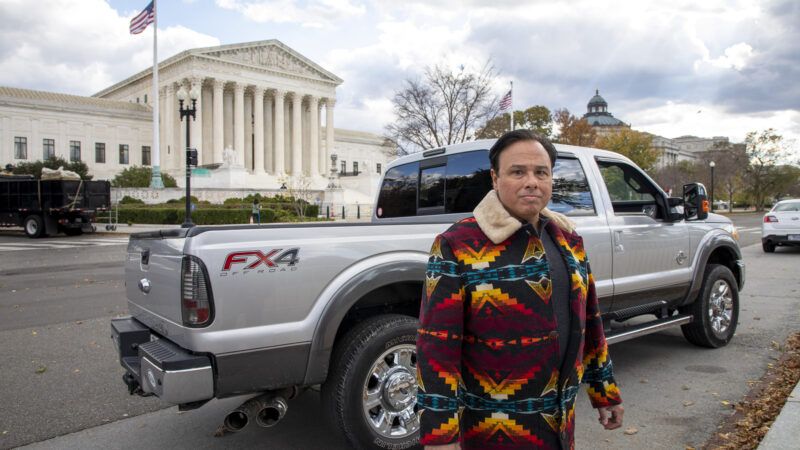The Government Seized This Innocent Man's Car Without Due Process. SCOTUS Won't Hear the Case.
"How can an ordinary person afford to wait years after the government takes their car?"

When Gerardo Serrano stopped in Eagle Pass, Texas, to snap some pictures of the U.S.-Mexico border, he thought the photos would be free. He paid with his vehicle.
In September 2015, Customs and Border Protection (CBP) seized the brand-new F-250 truck via civil forfeiture, which allows the government to take property from people merely suspected of committing a crime. Serrano's error: After agents pulled him over for the pictures, and after Serrano refused to surrender the password to his phone, they located five loose bullets in his vehicle (without a gun), and deemed them "munitions of war." He was detained for several hours and told to walk home.
For years, the government refused to properly adjudicate the matter. Not only was Serrano never charged with a crime, but CBP never filed a formal forfeiture complaint: It just took Serrano's property and sat on it while his pleas fell on deaf ears. He eventually shelled out $3,800 to challenge the move in federal court, and still heard nothing—until he filed a lawsuit against the agency for violation of due process.
At that point, CBP suddenly came around and returned the property. "The upshot is that Serrano lost his property for two years based on nothing more than a probable cause determination by CBP agents who were clearly irritated by his refusal to provide his iPhone password," wrote Reason's Jacob Sullum last year. "Such delays are built into modern forfeiture procedures, which include an 'administrative' phase during which a property owner can plead for mercy from the same agency that took his stuff and would receive the proceeds from selling it."
On Monday the Supreme Court declined to hear his case. That demurral reinforces the position taken by the 5th Circuit Court of Appeals: that the government does not violate someone's due process when they take their property without a hearing. Other circuits have ruled to the contrary.
"When the agents seized my truck, I couldn't believe it was happening to me," said Serrano in a statement. "And now I'm back in the Twilight Zone, thinking this can't be real. How can the courts just ignore this? And how can an ordinary person afford to wait years after the government takes their car?"
Serrano was given several options immediately following the seizure, from doing nothing to paying the vehicle's full market value to get it back. Noticeably absent from the list: a hearing. Given what happened today, that unfortunately won't change anytime soon.


Show Comments (55)